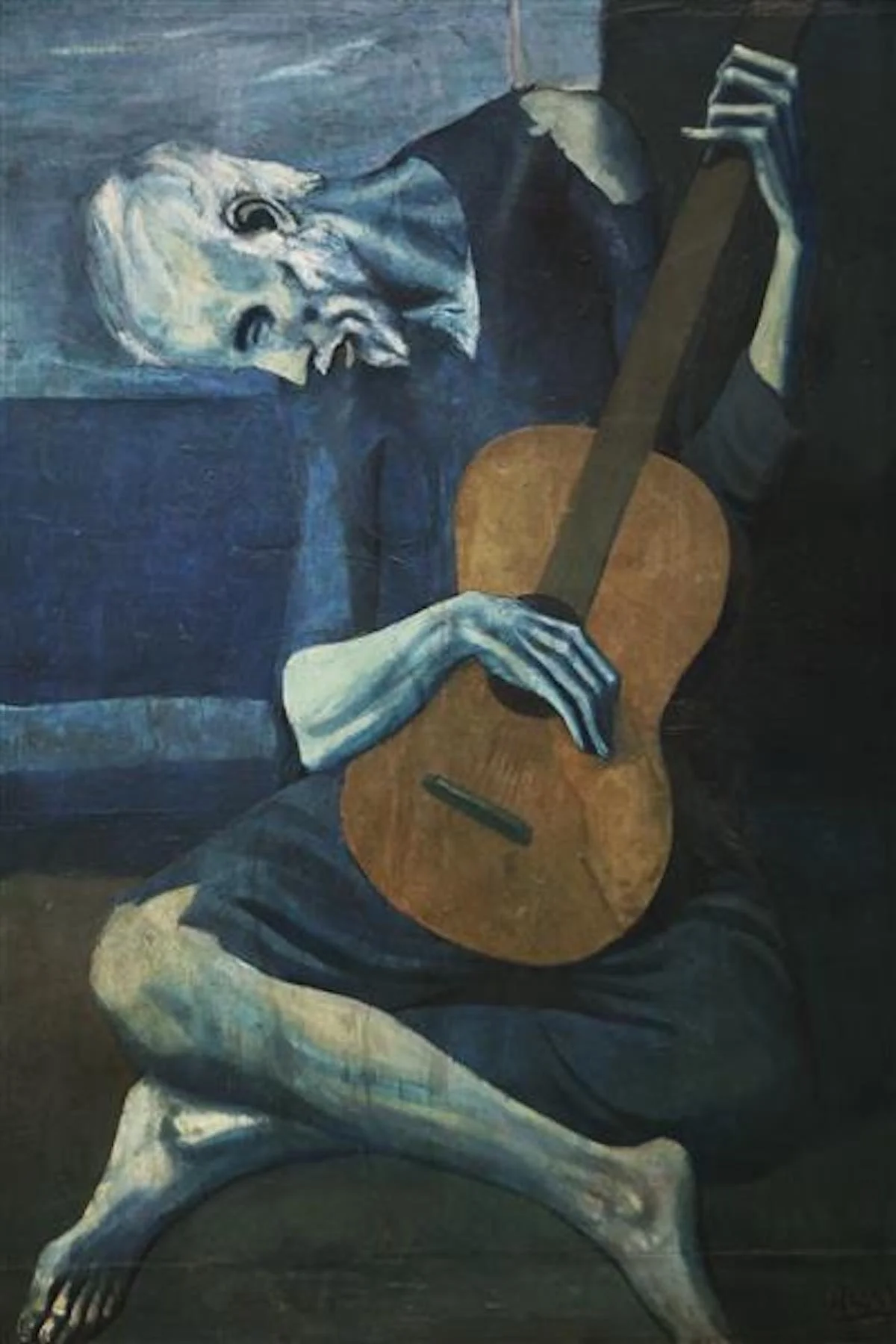The Wisdom of Montaigne | 21 Short Rules for (the Good) Life
Image: The old blind guitarist by Pablo Picasso (1903)
There is no knowledge so hard to acquire as knowing how to live this life well and naturally, observed the philosopher Michel de Montaigne (1533–1592). Today, Montaigne is best known for popularizing the essay as a literary genre. Montaigne described his goal in The Essays was to describe himself with utter frankness and honesty.
In How to Live: A Life of Montaigne, author Sarah Bakewell writes,
Learning to live, in the end, is learning to live with imperfection in this way, and even to embrace it. Our being is cemented with sickly qualities … Whoever should remove the seeds of these qualities from man would destroy the fundamental conditions of our life. — Montaigne
21 Short Rules for (the Good) Life — According to Montaigne
“My art and profession is to live.”
Wisdom and cheerfulness:
“The most certain sign of wisdom is cheerfulness.”
“There is nothing more notable in Socrates than that he found time, when he was an old man, to learn music and dancing, and thought it time well spent.”
“When I am attacked by gloomy thoughts, nothing helps me so much as running to my books.”
“The greatest thing in the world is to know how to belong to oneself.”
“On the highest throne in the world, we still sit only on our own bottom.”
Practicing death:
“To practice death is to practice freedom. A man who has learned how to die has unlearned how to be a slave.”
“To begin depriving death of its greatest advantage over us, let us adopt a way clean contrary to that common one; let us deprive death of its strangeness, let us frequent it, let us get used to it; let us have nothing more often in mind than death….”
“We trouble our life by thoughts about death, and our death by thoughts about life.”
“He who fears he shall suffer already suffers what he fears.”
“If you don’t know how to die, don’t worry; Nature will tell you what to do on the spot, fully and adequately.”
Composing our character:
“To compose our character is our duty, not to compose books, and to win, not battles and provinces, but order and tranquility in our conduct. Our great and glorious masterpiece is to live appropriately.”
“When I dance, I dance; when I sleep, I sleep; yes, and when I walk alone in a beautiful orchard, if my thoughts drift to far-off matters for some part of the time for some other part, I lead them back again to the walk.”
“My life has been full of terrible misfortunes most of which never happened.”
“Obsession is the wellspring of genius and madness.”
“Saying is one thing and doing is another.”
Examining yourself:
“If ordinary people complain that I speak too much of myself, I complain that they do not even think of themselves.”
“If I speak of myself in different ways, that is because I look at myself in different ways.”
“Nothing is so firmly believed as that which we least know.”
“Life itself is neither a good nor an evil: life is where good or evil find a place, depending on how you make it for them.”
“Writing does not cause misery, it is born of misery.”
Final Thoughts
“Life should be an aim unto itself, a purpose unto itself,” stressed Montaigne. His collection of Essays provides a plethora of practical wisdom on various aspects of life — gained through his own rigorous self-observation.
To quote Montaigne a final time, “A wise person sees as much as they ought, not as much as they can.”
——
Thank you for reading; I hope you found something useful. If so, please consider sharing it with others.
Each week, we send a short reflection with three insights to help you live your highest good. If you are not a subscriber to The PATH you can sign up here to receive it right to your inbox.






